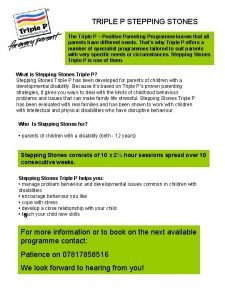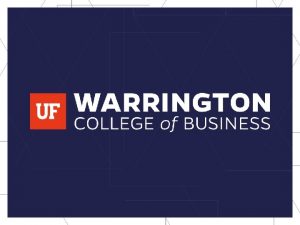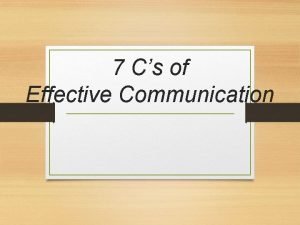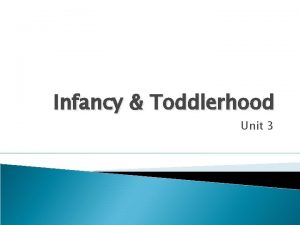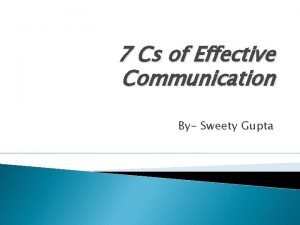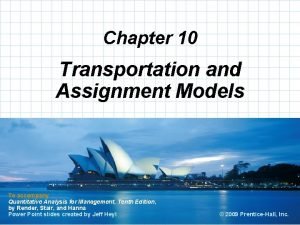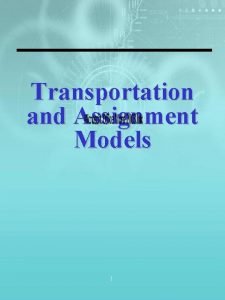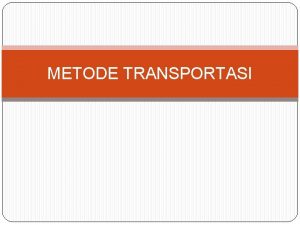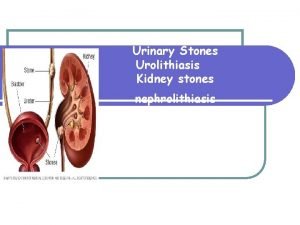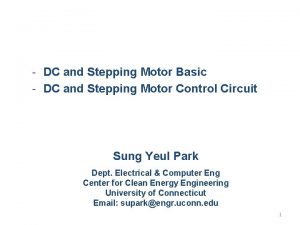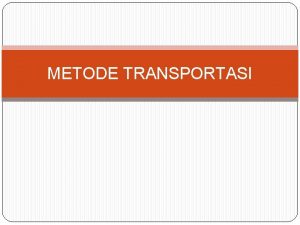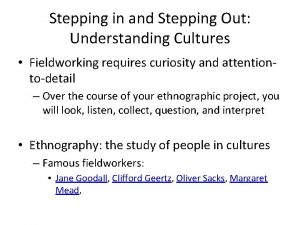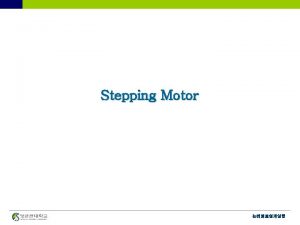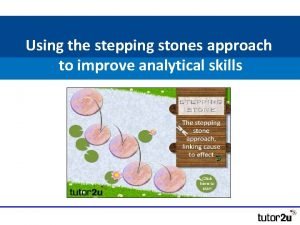SOPHOMORE YEAR STEPPING STONES TO JUNIOR YEAR PREPARING





















- Slides: 21

SOPHOMORE YEAR STEPPING STONES TO JUNIOR YEAR

PREPARING FOR THE FINISH LINE GRADES ATTENDANCE ACTIVITIES CONCURRENT ENROLLMENT

TO DO LIST…. . ❏TAKE ACT ❏DECIDE ON COLLEGE, MILITARY, WORKFORCE, TECHNICAL SCHOOL. ❏START RESEARCHING COLLEGES ❏BEGIN BUILDING PORTFOLIO SUMMER BETWEEN JUNIOR AND SENIOR YEARS

CHOOSE A GRADUATION PLAN ACE OR CORE? College Preparatory/Work Ready Curriculum Standards (ACE) Students entering the 9 th grade are required to enroll in the College Preparatory/Work Ready Curriculum. A student’s parent or legal guardian may complete an opt-out form provided by the school to request that the student be enrolled under the Core Curriculum standards also in state law. CORE CURRICULUM STANDARDS Students will enroll in the Core Curriculum standards outlined in state law if the parent or legal guardian gives approval in writing for the student to opt out of the College Preparatory/Work Ready Curriculum. For details see “Success” brochure or graduation requirements online at <www. sde. state. ok. us>.

College Preparatory/Work Ready Curriculum Standards (ACE) English (4 units or sets of competencies) ● English III ● English IV Mathematics (3 units or sets of competencies) ● Algebra II ● Geometry ● Trigonometry ● Math Analysis ● Calculus ● AP® Statistics ● Other mathematics course approved for college admission requirements Laboratory Science (3 units or sets of competencies) ● Biology I ● Chemistry ● Physics ● Other laboratory science course approved for college admission requirements History and Citizenship Skills (3 units or sets of competencies) 1 United States History, and 1 selected from the subjects of ● History ● OK History (½) ● Government, (½) ● Geography, ● Economics, ● Civics, ● or non-Western culture and approved to meet college admission requirements Foreign or Non-English Language or Computer Technology (2 units or sets of competencies) ● 1 st year of Foreign or Non-English language ● 2 nd year of same Foreign or Non-English language OR ● 1 st year of Computer Technology ● 2 nd year of Computer Technology (excludes keyboarding or typing courses Additional Core Class ● 1 Additional Unit or set of competencies selected from any courses listed previously.

ACE CONTINUED…. . Fine Arts or Speech (1 units or set of competencies) Music Art Speech Drama At Least 6 Electives Personal Financial Literacy Requirement Beginning with students entering the 7 th grade in the 2008 -2009 school year, in order to graduate from a public high school, students must complete and demonstrate satisfactory knowledge in 14 areas of instruction related to financial literacy, including such topics as credit card debt, saving money, interest, balancing a checkbook, understanding loans, identity theft, and earning an income. School districts have the option of determining when the areas of instruction are taught and whether these are integrated into existing courses or taught as a separate course (which may count as an elective credit).

CORE CURRICULUM 4 Units of English ● English III ● English IV 3 Units of Social Studies ● U. S. History ● OK History (½) ● Government (½) ● Other 3 Units of Math ● Algebra I ● Geometry ● Algebra II ● Math Of Finance ● Trig/Calculus ● Statistics ● Probablity 3 Units of Science ● Biology ● Physical Science ● Life Science ● Biology II 2 Units of Arts ● Music ● Art 8 Electives Personal Financial Literacy Chemistry

END OF INSTRUCTION EXAMS (EOIs) ACE Testing Requirements “Beginning with students who enter the ninth grade in the 2008 -2009 school year, every student shall demonstrate mastery of the state academic content standards in the following subject areas in order to graduate from a public high school with a standard diploma. ” (70 O. S. § 1210. 523) Except as explained in the sections that follow, to demonstrate mastery in the subject areas listed below, all students must score Proficient* or Advanced on the associated End-of-Instruction (EOI) exams. ACE Algebra I; ACE English II; and Two of the following five: ACE Algebra II, ACE Biology I, ACE English III, ACE Geometry, or ACE United States History

BUILD A PORTFOLIO ❖THREE LETTERS OF RECOMMENDATION ❖TEST SCORES ❖RESUME (INCLUDE ACTIVITIES, HONORS, COMMUNITY SERVICE, ETC) ❖CURRENT TRANSCRIPT ❖COLLEGE APPLICATIONS ❖ACCEPTANCE LETTERS

ACT & SAT All colleges and universities require students to take a college entrance test. The most popular test among Oklahoma students is the ACT. Some students opt to take the SAT. It is recommended that students begin taking the ACT or SAT no later than the spring of their junior year in high school. This allows ample opportunity to take the test multiple times to improve your score. Remember: Many scholarships are based on your ACT/SAT score! ● To register for the ACT go to http: //www. actstudent. org/. ● Test Fee ACT Only (NO Writing) - $38. 00 ● ACT Plus Writing - $54. 50 ● Juniors and seniors on Free/Reduced lunch may qualify for two free exams. See the counselor for details. ● To register for the SAT go to www. collegeboard. com/reg or see the counselor for a registration packet. ● Test Fee: $52. 50

CHAD CARGILL ACT PREP CLASS WHEN: November 2, 2015 8: 30 a. m. WHERE: EHS HIGH SCHOOL AUDITORIUM COST: $30 PER STUDENT This workshop is a practical hands-on instruction session developed by Chad Cargill. While in high school, Chad took the ACT 18 times and raised his score from a 19 to a 32. This workshop is packed full of relevant, practical information on how to increase your ACT score as he did. It shows you that the ACT is beatable and that each test will ask you the same questions, just worded differently. The workshop covers what will be on the test and how to master techniques. Prepayment is necessary, and seating is limited. Please reserve your seat with your counselor.

CONCURRENT ENROLLMENT Each high school junior or senior who meets the eligibility requirements shall be entitled to receive a tuition waiver equivalent to the amount of resident tuition for a maximum of six (6) credit hours per semester) Concurrent Enrollment Admission Standards Option 1 Minimum ACT Option 2 Minimum GPA & Class Rank Community Colleges 19 3. 0 Regional Colleges 20 3. 0 and top 50% Community Colleges 21 3. 5 Regional Colleges 23 3. 5 High School Seniors High School Juniors

Concurrent Enrollment Minimum ACT Scores for Concurrent Enrollment in Courses in Subject Area English Reading Mathematics Science Reasoning 19 19 ● Concurrent students may only enroll in curricular areas where they have met the ACT assessment requirements for college placement as indicated above. ● An ACT subject score of 19 in Reading is required for enrollment in any subject area other than English, Math, and Science Reasoning. ● Interested students must see Mrs. Combs to get paperwork to take to selected college before enrolling concurrently.

Concurrent Enrollment The following higher education courses commonly taken through concurrent enrollment have reviewed by th Oklahoma State Department of Education and approved academic credit: College Algebra General Biology General Botany English Composition 1 English Composition 2 Intro to Chemistry I American History Survey to 1877 American History Survey from 1877 Introduction to Geography American Federal Government Introduction to Speech 1 Credit High School Algebra II 1 Credit High School Biology II 1 Credit HIgh School Botany ½ Credit English IV 1 Credit High School Chemistry ½ Credit High School U. S. History ½ Credit High School World Geography ½ Credit High School American Government ½ Credit High School Speech

KIAMICHI TECHNOLOGY CENTER Students may begin attending Kiamichi Technology Center in Mc. Alester their junior year if they have earned the required amount of high school credits. Please see Mrs. Combs for more information.

Advanced Placement (AP) Courses ● Earn College Credits By taking an AP course and scoring successfully on the related AP Exam, you can save on college expenses: most colleges and universities nationwide offer college credit, advanced placement, or both, for qualifying AP Exam scores. These credits can allow students to save college tuition, study abroad, or secure a second major. ● Most colleges require a score of 3, 4, or 5 to earn college credit.

LET’S TALK MONEY! WHAT A DIFFERENCE A DEGREE MAKES! WITHOUT A DEGREE MONTHLY GROSS PAY …$1, 760. 00 WITH A MONTHLY GROSS PAY…$3, 840. 00 TAKE HOME PAY …$1, 404. 00 HOME PAY…$2, 814 TAKE

OKLAHOMA’S PROMISE The Promise: Upon completion of the program’s requirements, you will earn: ★ Free tuition at an Oklahoma public two-year college or four-year university. ★ OR a portion of tuition at an accredited Oklahoma private college or university ★ OR a portion of tuition for courses at public technology centers that are approved for credit toward an Associate in Applied Science degree at a public college. Applicants must be: ★ 8 th, 9 th, or 10 th grade students. ★ Oklahoma residents ★ Students whose parents earn $50, 000 or less per year. ★ Students who promise to meet the requirements of the program.

FINANCIAL AID CHECKLIST ❏ Sign up for Oklahoma’s Promise now if your family meets requirements outlined at okpromise. org. ❏ Explore OKcollegestart. org and UCan. Go 2. org to learn more about paying for college. Start researching the colleges you're interested in and learn what types of financial aid they offer. ❏ Find out if scholarships are available in the fields you’re interested in and what the requirements are so you can plan early to apply. Scholarships are called “free money” because they don’t have to be paid back. Students earn scholarships based on financial need, grades, talents, and life experiences.

ADMISSION STANDARDS 2015 -2016 MINIMUM HIGH SCHOOL PERFORMANCE CRITERIA FOR ADMISSION OPTION I OU OPTION 2 24 ACT AND 3. 0 GPA OR TOP 50% OF CLASS REGIONAL 20 ACT 2. 7 GPA IN 15 UNIT CORE UNIVERSITIES OSU 3. 0 GPA IN 15 UNIT CORE & 21 ACT COMMUNITY TAKE THE ACT. COLLEGE OPTION 3 3. 0 GPA AND NO OPTION 3 TOP 25% OF CLASS 2. 7 GPA AND TOP 50% OF CLASS 24 ACT 3. 0 and & TOP 33% OF CLASS NO MINIMUM REQUIRED. YOU DON’T NEED TO MAKE CERTAIN SCORES, BUT YOU SHOULD

TO DO LIST! ➢ Study Hard. Build good study habits to keep your grades in tip-top shape. ➢ Talk it up. Discuss your future plans with your guidance counselor, teachers, family members or other trusted adults. ➢ Take the right classes. To be college-bound, you’ll need to meet Achieving Classroom Excellence (ACE) graduation requirements. plan to take at least four college-preparatory classes per year. ➢ Be active. Participate in extracurricular activities and volunteer work. Many college admission officers look for students who are actively involved in their school and community. ➢ Check it out. Investigate college entrance requirements. ➢ Think about it. Start thinking about the university or college you’d like to attend.
 Stepping stones portsmouth ohio
Stepping stones portsmouth ohio Stepping stones triple p
Stepping stones triple p Stepping stones to glory cartoon analysis
Stepping stones to glory cartoon analysis Stepping stones to glory cartoon
Stepping stones to glory cartoon Sophomore year
Sophomore year Sophomore seminar high school
Sophomore seminar high school Sophomore slump
Sophomore slump Vertical angles theorem
Vertical angles theorem Completeness meaning in communication
Completeness meaning in communication Dr stepping
Dr stepping Stepping reflex
Stepping reflex 7 c's of communication clarity
7 c's of communication clarity Delta stepping
Delta stepping Stepping stone method
Stepping stone method Moro reflex definition psychology
Moro reflex definition psychology Dr sujata gupta gynaecologist
Dr sujata gupta gynaecologist Delta stepping
Delta stepping Stepping stone method
Stepping stone method Steppingstone server
Steppingstone server Stepping
Stepping Metode transportasi stepping stone
Metode transportasi stepping stone Sticks and stones origin
Sticks and stones origin

